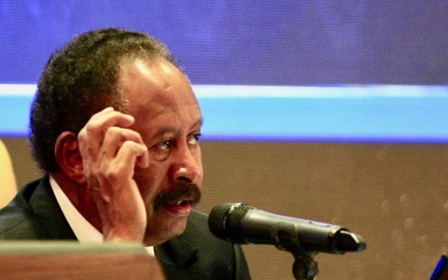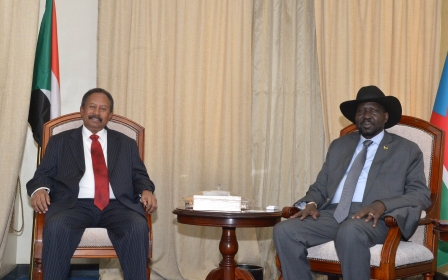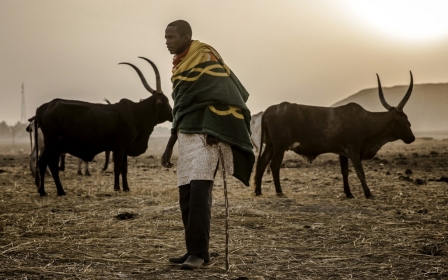Protests spread in Sudan's Darfur region over shortages of bread and fuel

Large crowds chanted revolutionary slogans on the streets in Sudan's western Darfur state on Monday despite forces breaking up earlier protests.
Livestream videos showed hundreds in the city of Nyala, in southern Darfur, gathering for a third day of protests centred on bread and gas shortages blamed on corruption.
Schoolchildren had initiated the protests but were joined by others holding up signs denouncing Sudanese forces' use of violence on Sunday.
Similar protests in December were the spark for a months-long uprising that ousted three-decade ruler Omar al-Bashir and eventually led to protesters forcing the military into accepting a hybrid civilian-military transitional government.
"Hundreds of students protested against the shortage of bread and when they reached the government headquarters in Nyala, police used violence against them," the Forces of Freedom and Change (FFC) coalition of opposition and protest groups said in a statement.
New MEE newsletter: Jerusalem Dispatch
Sign up to get the latest insights and analysis on Israel-Palestine, alongside Turkey Unpacked and other MEE newsletters
"There are several injured among the students. We condemn the use of violence against the student protest and call for an investigation."
The South Darfur wing of the FFC's most influential force, the Sudanese Professionals Association (SPA), accused security forces of "playing with distribution of flour and fuel".
Students in Sudan's eastern city of Kassala also reacted to the violence in Darfur by protesting in solidarity on Monday, according to the Association of Sudanese Students, while social media users launched the hashtag "challenges of the transitional period".
Translation: Students of Kassala demonstrate in solidarity with Nyala and condemn the repression of peaceful protests by security forces.
Sudan's notorious Rapid Support Forces paramilitary group has a strong presence in Nyala and throughout Darfur, where they evolved from the Janjaweed militias accused of genocide against indigenous communities.
The UN has estimated that 300,000 were killed in Darfur in operations ordered by Bashir, who is wanted by the International Criminal Court for genocide and crimes against humanity.
Living costs in Sudan soared under Bashir's rule and the economy has struggled since the secession of South Sudan in 2011, where most of the country's oil fields were located.
The new civilian cabinet, led by former UN economist Prime Minister Abdalla Hamdok, has declared repairing Sudan's ravaged economy one of its main priorities.
Finance Minister Ibrahim Elbadawi announced on Monday that Hamdok would be asking the World Bank to provide Sudan with $2 billion while visiting New York for the upcoming UN General Assembly.
Middle East Eye delivers independent and unrivalled coverage and analysis of the Middle East, North Africa and beyond. To learn more about republishing this content and the associated fees, please fill out this form. More about MEE can be found here.




